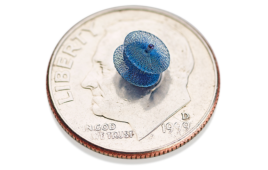
RTI announced that a peer-reviewed, pre-clinical study titled “Multipotent adult progenitor cells on an allograft scaffold facilitate the bone repair process” has been published. Image source: www.ismoc.net
RTI Surgical (RTI), a global surgical implant company, announced that a peer-reviewed, pre-clinical study titled “Multipotent adult progenitor cells on an allograft scaffold facilitate the bone repair process” has been published in the latest edition of the Journal of Tissue Engineering.
The pre-clinical study, conducted by Amanda LoGuidice, PhD., used similar materials to the proprietary, patented MAPC-based technology used in RTI Surgical’s map3 Cellular Allogeneic Bone Grafts. The study is the first peer-reviewed, published pre-clinical study comparing multipotent adult progenitor cells (MAPCs) to mesenchymal stem cells (MSCs) in bone healing.
Results demonstrated MAPCs exhibited a more robust angiogenic protein release profile compared to MSCs in vitro. In addition, MAPCs demonstrated enhanced revascularization and new bone formation in vivo in an orthotopic defect model when compared to MSCs when placed on a DBM scaffold.
“We value research that helps us continue to provide surgeons with safe, high-quality implants,” said Carrie A. Hartill, executive VP and chief scientific officer of RTI Surgical. “We are proud of our advancements in the allograft industry and this study’s results that support the science behind our map3 implant.”
The full study can be viewed here.




